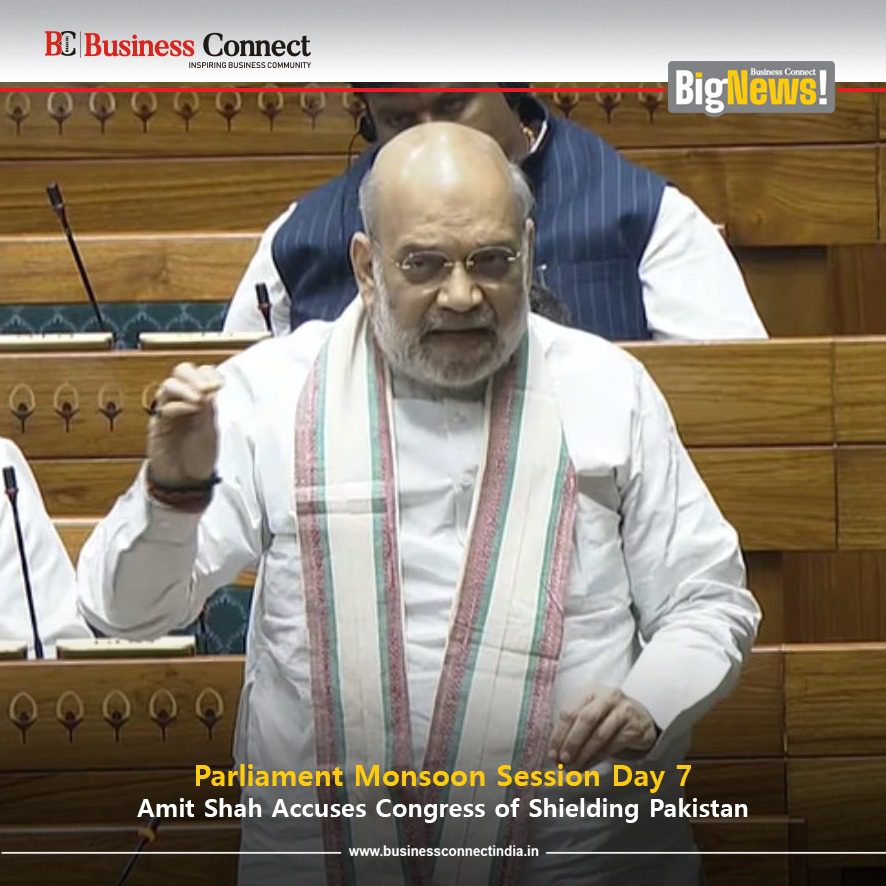The seventh day of the Parliament Monsoon Session 2025, held on July 29, 2025, was marked by intense debates and sharp exchanges in the Lok Sabha, particularly over Operation Sindoor and the Pahalgam terror attack. Union Home Minister Amit Shah took center stage, delivering a fiery speech that accused the Congress party of giving a “clean chit” to Pakistan, reigniting tensions between the ruling BJP-led National Democratic Alliance (NDA) and the opposition. The session, part of a 16-hour debate on Operation Sindoor, saw both sides trading barbs over national security, foreign policy, and alleged political posturing.
Context of the Debate
The discussion centered on Operation Sindoor, India’s military response to the April 22, 2025, Pahalgam terror attack that claimed 26 civilian lives. Launched on May 7, 2025, between 1:04 am and 1:24 am, Operation Sindoor targeted nine terror sites in Pakistan and Pakistan-occupied Kashmir (PoK), with no reported civilian casualties. Shah detailed the success of the operation, emphasizing that it was a precise strike against terrorist infrastructure, contrasting it with the Congress-led UPA government’s approach of sending dossiers in response to terror attacks. He also highlighted Operation Mahadev, a joint operation by the Indian Army, CRPF, and Jammu & Kashmir Police, which neutralized three Pakistani terrorists—Suleiman (alias Faizal Jat), Afghan, and Jibran—linked to the Pahalgam attack.
Amit Shah’s Accusations Against Congress
Shah’s most pointed criticism was directed at former Home Minister P. Chidambaram, whom he accused of questioning the evidence linking the Pahalgam attackers to Pakistan. Shah argued that Chidambaram’s remarks, made in an interview suggesting the possibility of “homegrown terrorists,” were tantamount to defending Pakistan and undermining India’s security narrative. “What will you gain by saving Pakistan?” Shah asked, asserting that the government had concrete proof, including voter IDs of two terrorists and ballistic analysis confirming their rifles were used in the attack. He further criticized the Congress for lacking faith in India’s External Affairs Minister while trusting foreign narratives, a jab aimed at their response to US President Donald Trump’s claims of mediating a ceasefire.
Shah also took a historical swipe, blaming former Prime Minister Jawaharlal Nehru for the existence of PoK due to a unilateral ceasefire in 1948 when Indian forces were poised to reclaim the territory. He contrasted this with the Modi government’s decisive actions, including the 2016 surgical strike, the 2019 Balakot air strike, and Operation Sindoor, which destroyed 11 Pakistani air bases and over 100 terrorists.
Opposition’s Counterattack
The opposition, led by Congress Deputy Leader Gaurav Gogoi, hit back by questioning security lapses that allowed the Pahalgam attack to occur. Gogoi demanded accountability from Shah, asking how terrorists managed to infiltrate and kill 26 civilians. He also raised concerns about the loss of Rafale jets and the government’s failure to apprehend all perpetrators. Congress leaders Rahul Gandhi and Priyanka Gandhi Vadra were expected to intensify this critique, focusing on intelligence failures and Trump’s ceasefire claims, which External Affairs Minister S. Jaishankar firmly denied, clarifying no such mediation occurred.
The opposition also protested the Special Intensive Revision (SIR) of electoral rolls in Bihar, alleging it could disenfranchise voters ahead of elections. This issue caused repeated adjournments in the Rajya Sabha, which was set to hold its own 16-hour debate on Operation Sindoor, opened by Defence Minister Rajnath Singh.
Political Implications
Shah’s remarks underscored the BJP’s narrative of a strong, uncompromising stance on national security, positioning the Congress as soft on terrorism. His comment that the opposition would remain on the benches for “the next 20 years” reflected the ruling party’s confidence in its governance and electoral prospects. Meanwhile, internal Congress tensions surfaced, with MPs like Manish Tewari and Shashi Tharoor reportedly sidelined from speaking due to differing views on Operation Sindoor, highlighting the party’s struggle to present a unified front.
Conclusion
Day 7 of the Monsoon Session showcased the deep divide between the NDA and the opposition, with Operation Sindoor serving as a flashpoint for broader debates on security, foreign policy, and political accountability. Shah’s accusations against Congress for allegedly shielding Pakistan intensified the rhetoric, while the opposition’s focus on security lapses kept the government on the defensive. As Prime Minister Narendra Modi was expected to address the session later, the nation watched closely for further clarity on India’s stance against terrorism and its diplomatic strategy.
Add Business Connect magazine to your Google News feed



